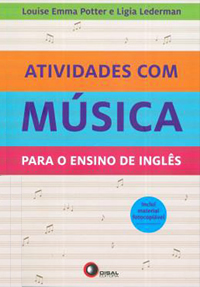I took a course during these last holidays which main objective was to focus on cross curricular activities in mainstream schooling. During the course, a whole new image came to my mind regarding our teaching system and my own teaching concepts. Not that it was all new, but somehow the pieces of the jigsaw puzzle began to fit in better.
Subjects taught at schools are often put into slots of teaching moments. During Chemistry lessons, students focus on organic and inorganic compounds, barely understanding how they influence our lives on a daily basis. Although some subjects in mainstream schooling cover topics that might interest students, they are taught as an end in itself and not as a means to an end. Usually the end is an exam that will enlighten the teacher to whether the student is capable of advancing to another level or if he/she must stay behind. Content is put before the process. One of the main discussions recently, especially when referring to evaluation, is that we have to put process before content; how we learn before what we learn. And this is a never-ending story. Changes are bound to come and we are always welcome them with open arms. Critically, but always welcome them.
This is one of the reasons why we, at Teach-in Education, have embraced Project Based Learning and I truly believe it is the way to go. More can be read about it here.
However, going back to the course, one of the authors that was largely talked about was Ken Wilber, who states that “No one is smart enough to be wrong 100% of the time,” and therefore we should focus on what’s right and leave out the rest. I found this statement intriguing mainly because, as teachers, we are constantly bombarded with different teaching concepts, methods and dynamics. We all have different beliefs, which usually fall back on the way we were taught. We are all studying intensively about the students of the 21st century and the skills we need to engage in inside the classroom. We understand that knowledge is out there for anyone to pursue. It is global. However, we still teach our students in the same way, sealed inside the classroom. We are not making the best out of what technology is offering us. We talk about Apps and sites we can bring into the classroom to leverage our students learning abilities nevertheless we are avoiding the most meaningful tool our students carry, which is their brain. The ability our students have to process, understand, question, agree, disagree, sequence and much more in order to make the classroom a place where students bring in their doubts, ideas and fears to discuss, is unfortunately still being silenced.
As a teacher trainer, I force myself to look at teaching English on a whole different level. Going beyond the language itself, bringing in provocative projects related to all subjects into the classroom such as cultural aspects of different countries, political debates for students in high school, teaching kids about sustainability and so on. One can question me and say that this is impossible with younger students, but I would disagree. Obviously the language used would be on a different level, however, we can still go beyond the language and use it as a means and not an end.
Ken Wilber goes much deeper and invites us to take literally everything that all the various cultures have to tell us about human potential—about spiritual growth, psychological growth, social growth—and put it all on the table. He goes further and, based on extensive cross-cultural study, using all of the world’s great traditions , creates a composite map, a comprehensive map, an all-inclusive or integral map that includes the best elements from all of the traditions and beliefs. Having this in mind, we are able to invite our students to be more critical using the skills they are more than ready for in the 21st century.
We still have a long way to go, however, I do believe we are on the right track. The best part of being a language teacher is that we can teach literally any subject we want to, as long as it engages our students and obviously, focuses on language proficiency as a means for a goal.
Bibliografia
http://joinintegrallife.com/what-is-integral/
LIVRO RECOMENDADO
